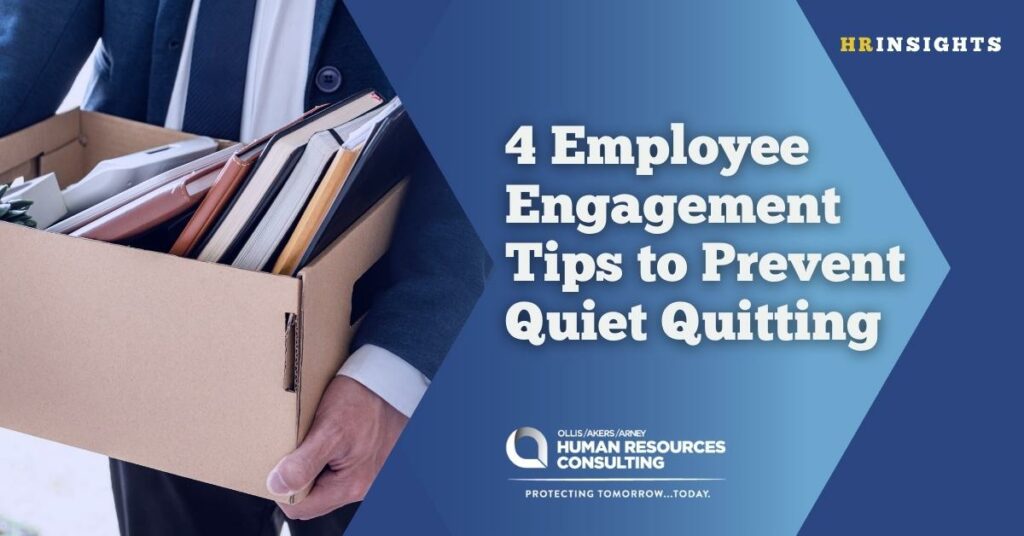“Quiet quitting” continues to be an emerging trend where workers only do what their job description entails without going above and beyond. Or, this could mean only doing work directly assigned to them by a manager, while not looking for other ways to contribute to a team. When employees feel undervalued for the work they are doing, or that they are not being compensated adequately to do more work, they may begin to quiet quit. Further, quiet quitting is often the result of high levels of burnout, or decreased motivation or engagement.
Luckily, there are steps employers can take to engage employees and prevent quiet quitting from happening in the first place. When employees are engaged in their roles and actively involved in their organization, they are far less likely to quiet quit. To help eliminate quiet quitting in their organizations, employers may want to consider the following tips to enhance employee engagement:
1. Provide learning and development opportunities.
One effective way to increase engagement is through learning and development initiatives. By ensuring that employees can learn new things and enhance their skill sets, they are less likely to become bored within their roles. According to Zywave’s 2022 Attraction and Retention Benchmarking Overview, 29% of employers found career development opportunities to be a top priority of workers during the hiring process. Employees with these opportunities are more likely to be engaged and stay motivated to try their best at their jobs.
2. Conduct performance reviews.
Performance reviews are opportunities to reward employees for the positive things they have done and inspire them to continue working hard. Without this feedback and indications of appreciation for hard work (e.g., title adjustments and salary raises), employees may start to disengage and consider quiet quitting. Acknowledging an employee’s hard work is an important factor for continued engagement. Conversely, performance reviews are also a time for employers to talk with underperforming employees and find ways to engage them and improve their performance.
3. Enable quiet employees to speak up.
Not all employees will feel comfortable voicing their opinions at work, but it’s still important that employers figure out what those quieter employees are thinking. Employers should consider offering confidential engagement surveys that assess how employees are feeling and allow an opportunity for quiet employees to speak up without feeling like what they say will have any negative effect on them. Further, employers should consider different ways to provide all employees a chance to participate in meetings, whether or not they are naturally outgoing or usually an active participant. Making sure all employees speak up during meetings and events can help ensure that everyone feels like they are a part of the team.
4. Use adaptable management strategies.
Employers may wish to meet with managers and discuss effective strategies and resources they can use to ensure that their individual teams remain engaged in their work and the larger organization. For example, managers can give employees complete ownership over particular projects or implement recognition programs to acknowledge when an employee does something positive. Different strategies will work better for different employees, so managers should consider trying various ways to engage employees.
5. Takeaway
Often, quiet quitting is the result of decreased employee engagement. Fortunately, employers can apply various strategies to help keep their employees engaged in their roles and decrease quiet quitting throughout their organizations.
For more information on quiet quitting, contact Ollis/Akers/Arney Human Resources Consulting today.
This HR Insights is not intended to be exhaustive nor should any discussion or opinions be construed as professional advice. © 2022 Zywave, Inc. All rights reserved






